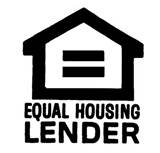
Congratulations. You’re living the dream of being your own boss. Perhaps you’re a freelance photographer, an in-demand consultant, or you finally started that catering business. Whatever your business venture, if you are pursuing that other American dream of home ownership, you’ve got to do some planning.
Here are some special circumstances of which you should be aware:
Income Verification
As an employee of a large company, proving your income was as simple as showing your pay stub and W-2. When you are self-employed, it gets a little more complicated. For example, you might be reducing your gross taxable income via business deductions or by declaring a smaller salary as you build your business. That makes good financial sense. But by reducing your gross annual income, you might also be reducing your chances of getting a larger loan. Talk to your accountant to make sure that you are establishing a good income history.
Your Slow Season
There might be a certain time of year when your business is booming. But mortgage lenders want to know that you’ll be able to make your payments year round. A robust savings account can help tremendously in this situation.
Lenders also try to look at how your income has fluctuated over the past two years. If business income is declining, the lower income numbers are used to determine a loan. If it is increasing or stable over the past two tax returns, an average of the two years is considered.
Paperwork
“Low doc” or “stated income” loans are a thing of the past. You’ll need to be ready to supply your past two years’ tax returns and possibly a current profit-and-loss statement. Increased documentation is the new normal in the mortgage arena.
One of the reasons you decided to work for yourself might be to have more financial independence. Being smart about the mortgage process and learning everything you can is another example of taking control of your financial future.
(This article first appeared on AMP's website www.amppob.com.)






